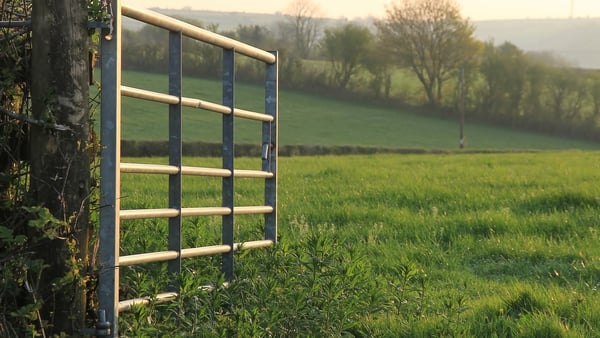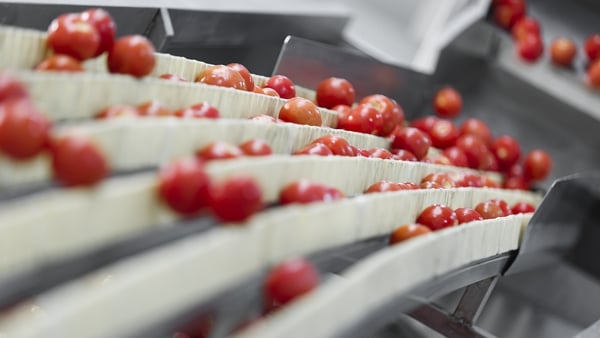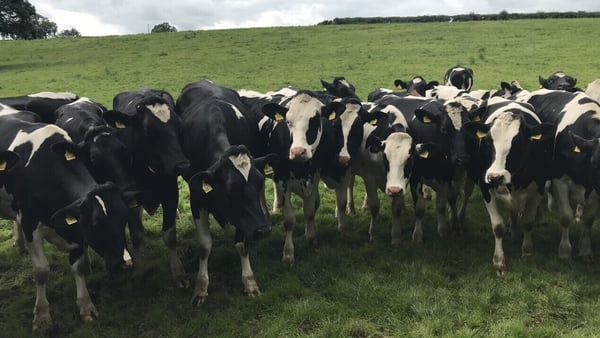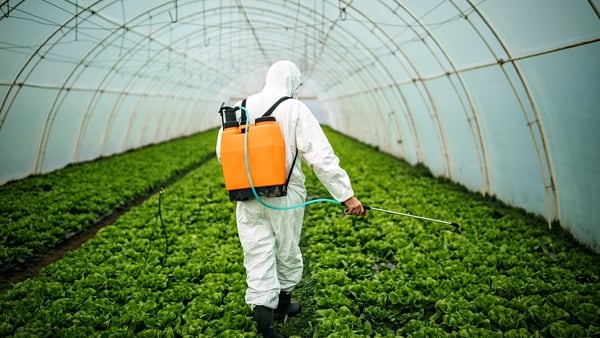Mention Bovine Spongiform Encephalopathy (BSE) and what immediately comes to mind are images of disoriented cows jerking involuntarily and falling clumsily.
Readers of a certain age will recall the BSE outbreak in Ireland in 1989 when 15 cases were detected.
There was a larger outbreak at the same time in the UK.
Those outbreaks of "classic" BSE 34 years ago were attributed to the feeding of meat and bonemeal to cattle.
They were strongly linked to cases in humans of variant Creutzfeldt-Jakob Disease (vCJD), a fatal disease with symptoms broadly similar to BSE in cattle.
Most vCJD case were linked to consumption of cattle infected with BSE so naturally it led to protracted fears about meat eating.
Perhaps then it is no surprise then that Chinese authorities take a very strict line when any sort of case of BSE is identified, as happened this week.

Following a tip off, RTÉ News was able to confirm on Tuesday evening that a new case of BSE had been detected during post-mortem testing of a dead 10-and-a-half year old cow from the west of Ireland.
The testing was carried out by Department of Agriculture staff in a knackery facility for fallen animals.
The results came through on 3 November and found the animal had "atypical" BSE.
The Department of Agriculture assured the public that there was no health risk or risk to food associated with the case.
Atypical BSE is very different from classic cases of the disease in that it occurs spontaneously in older bovine animals and is not caused by contaminated feed.
Another reason for assurance is that cattle that are processed into beef in Ireland are generally under 30 months old.
Nevertheless under the protocol governing Irish beef exports to China, any case triggers an immediate suspension of trade.
That is what happened this week.
The Department of Agriculture maintains a strict and robust testing and monitoring system which led to the discovery of the latest case and demonstrates our food and feed safety controls are effective.
China is the second-most populous country in the world and the closure of such a vast market is a blow to Irish farmers.
Ironically, the market had just reopened for Ireland in January this year.
The value and volume of Irish beef exports in the first eight months of 2023 was €16.3m for 2,700 tonnes.
No figures for September and October are yet available, but trade had been increasing.
That governing protocol also stipulates that it's up to the Chinese to decide if and when they will once again accept Irish beef exports.
Until 2018, Ireland did not have any beef export agreement in place with China, but trade started in 2019.
That year it was worth €40m. Then in 2020 disaster struck.
Another case of atypical BSE was discovered in a 14-year-old cow on a farm in Tipperary, triggering suspension.
It took nearly three years for authorities to renegotiate access to China for Irish beef. Now the process begins again.
We need your consent to load this comcast-player contentWe use comcast-player to manage extra content that can set cookies on your device and collect data about your activity. Please review their details and accept them to load the content.Manage Preferences
Perhaps it will. Earlier this year, an atypical BSE case occurred in a bovine in Brazil.
Beef exports to China were immediately shut down. However, within four weeks exports resumed.
Irish beef exports to China are miniscule compared with Brazil, but beef producers here will still be hoping for a similar swift result.
Despite this latest case of atypical BSE, Ireland retains its status as a country with negligible risk for classic BSE.
That status was first granted in 2021 by the World Organisation for Animal Health (WOAH) and is not affected by the occurrence of atypical BSE cases.
The Department of Agriculture maintains a strict and robust testing and monitoring system which led to the discovery of the latest case and demonstrates our food and feed safety controls are effective.
And of course, there remains a decades-old absolute ban on meat and bone meal being used in feed for cattle and sheep.
That is vitally important when 93% of the beef produced in Ireland is exported.
Until this month, we were exporting to 70 countries. Now it's to 69.
It is up to the Chinese authorities do decide when Irish beef can once again be permitted into that country.






